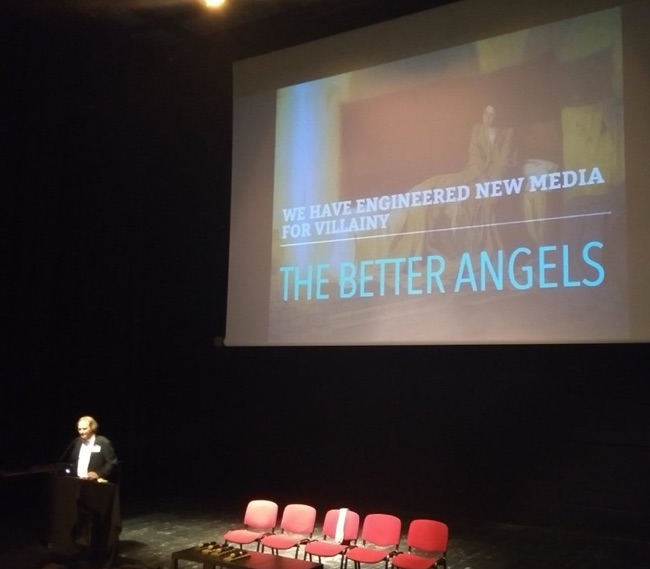The Web Unbalanced

photo:Maranke Wieringa
What was I doing in Paris? I opened Web Studies 2.0, a fascinating meeting of (mostly) Euopean and North African web researchers, with a look at the World Wide Web we have built through our research.
How did we come to this pass?
New media were meant to augment our abilities and to liberate our understanding. We dreamt of fast access to unbounded libraries, of university-level courses delivered at minuscule cost to remote villages, of access to tools. We envisioned new literary forms and a new birth of freedom of expression unencumbered by the cost of chopped trees.
What we got was Facebook, Reddit and 4chan. We got Jimmy Wales and Milo Yiannopoulos and Candy Crush Saga. We got Gamergate and the GRU. We got Donald Trump.
All this is not entirely our fault, or only our fault. But it is our fault; our new media ecology is the world we have made, and it is far, far from the world of which we had dreamt. Our predicament arose, I believe, because the twentieth century discovered a set of beautiful, difficult, and powerful ideas — and we handed those ideas to knaves, fools, and villains. The same ideas were available as well to dedicated scholars, thoughtful policy-makers, and brilliant artists, but our world is not always a place of perfect symmetry and the systems we built seem often, in practice, to favor the abusive and to privilege the villain.
This asymmetry is arguably the defining property of our new media ecology.
The paper goes on to discuss some specific ways that today’s Web helps villains more than is helps the virtuous, and then look for some ways we could change that.
ACM Digital Library subscribers can read the paper here, and everyone can read it here.